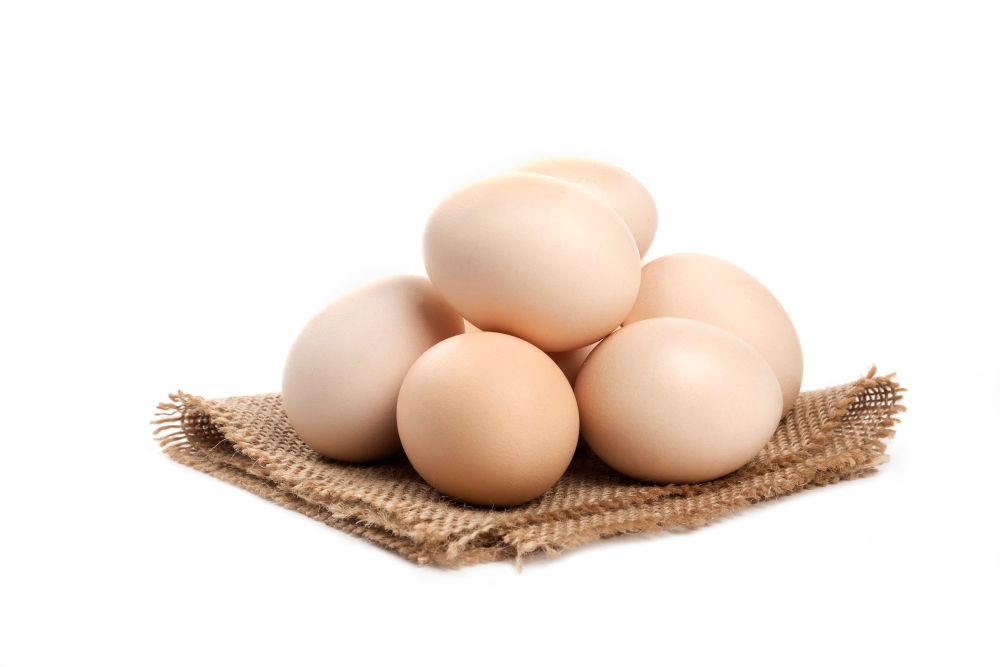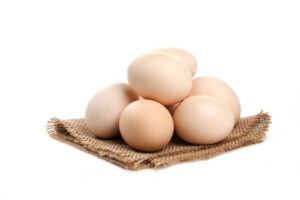

Few items are as adaptable and popular as eggs when it comes to breakfast staples. However, if you’re watching how many calories you consume, you may be wondering: Let’s investigate the nutritional profile of eggs and how different elements affect their calorie count as we tackle this subject.
An egg of considerable size, usually weighing about 50 grams, has about 70 calories. The size of the egg can cause a little variation in this number:
The yolk and white of an egg are its two main components, and each adds a distinct number of calories to the total.
Your egg’s calorie content might vary greatly depending on how you cook it. This is a brief analogy:

There’s more to eggs than their calorie content. Packed with great protein, vital vitamins (including B12, D, and A), minerals (such iron and selenium), and good fats, they are a nutritional powerhouse. These nutrients are essential for healthy brain function, muscle growth, and general well-being.
Eggs have numerous health advantages that extend beyond their calorie content. Eggs are a vital source of nutrients that support brain and muscle growth and aid in satiety, among other aspects of our overall health. Because of their affordability, adaptability, and high nutrient content, eggs are a staple food for both foodies and health-conscious people. Therefore, eggs are a tasty and nourishing complement to any plate, whether you’re cooking a fancy meal or just a quick breakfast.
Over time, there have been many false beliefs about eggs, despite their high nutritious content. We’ll dispel common misunderstandings about eggs, including those regarding cholesterol and egg color, and offer data-supported explanations for why they’re a wise dietary option.
Beyond their nutritional makeup, egg production’s effects on the environment and ethics must be taken into account. Find out about ethical issues, ecologically friendly agricultural methods, and how to choose eggs wisely to protect the environment and your health.
Knowing how many calories an egg contains enables you to make well-informed dietary decisions without sacrificing nutritional value. Whether you like your eggs fried, scrambled, poached, or boiled, they may make a significant contribution to a balanced diet. That way, you’ll know exactly what to do for breakfast the next time!
Including eggs in your diet can be delicious and beneficial. Eggs are a nutritional jewel that is well worth appreciating because of their versatility and rich vitamin profile.
100% Original product, do not sale them as we are licensed.
Your payments are secure with our private security network.